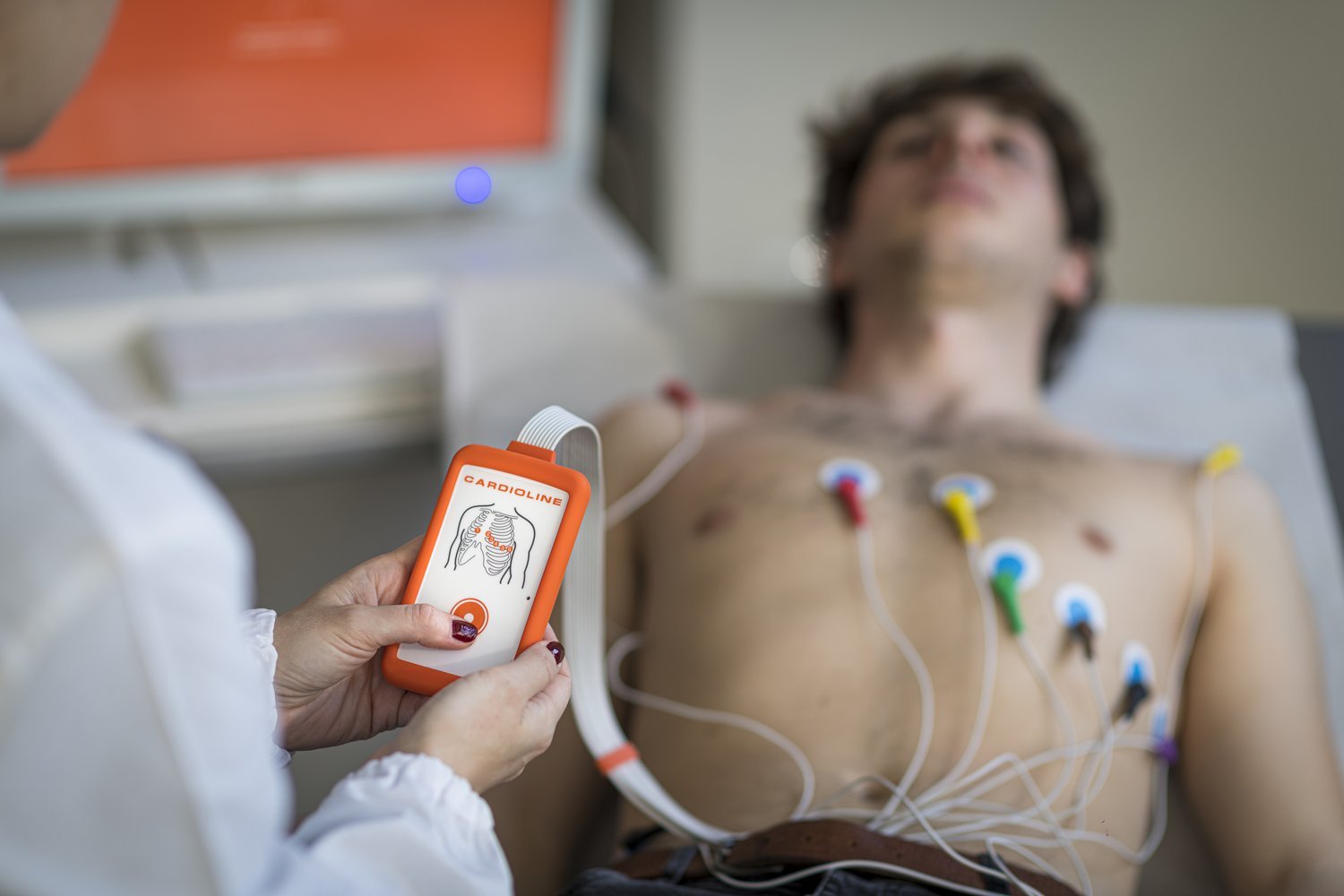
Arrhythmias & Atrial Fibrillation
Diagnostic testing for atrial fibrillation
There are numerous arrhythmias, commonly known as an irregular heartbeat, of which the most common is atrial fibrillation. Various types of atrial fibrillation may last for a short time, or be a permanent condition.
If atrial fibrillation is suspected, we will review your symptoms, medical history, perform a physical exam, and carry out one or more diagnostic tests to confirm atrial fibrillation.
Electrocardiogram: An ECG is a non-invasive test that can confirm an AF diagnosis. This test records your heart's rhythm and electrical activity by attaching sensors to the outside of your body. The sensors are connected to a machine that detects tiny electrical signals that make your heart pump blood around your body. It is a harmless and painless procedure.
Holter monitor: This test requires patients to wear a small, portable ECG for between one and two days. It is performed when an ECG test for an AF diagnosis is inconclusive or to assess how well your condition is controlled. You can wear the machine around your shoulder or waist while electrodes are attached to your chest. The monitor will record your heart rate and rhythm over a few days and, therefore, will provide your medical team with more information about your condition.
Event recorder: If you don’t get AF symptoms very often, your doctor may request an event recorder. This monitor is used over two to four weeks to record your heartbeat during times when you experience symptoms such as dizziness, blackouts, chest pain or palpitations.
Other diagnostic tools include an implantable loop recorder, blood tests, and an echocardiogram.


